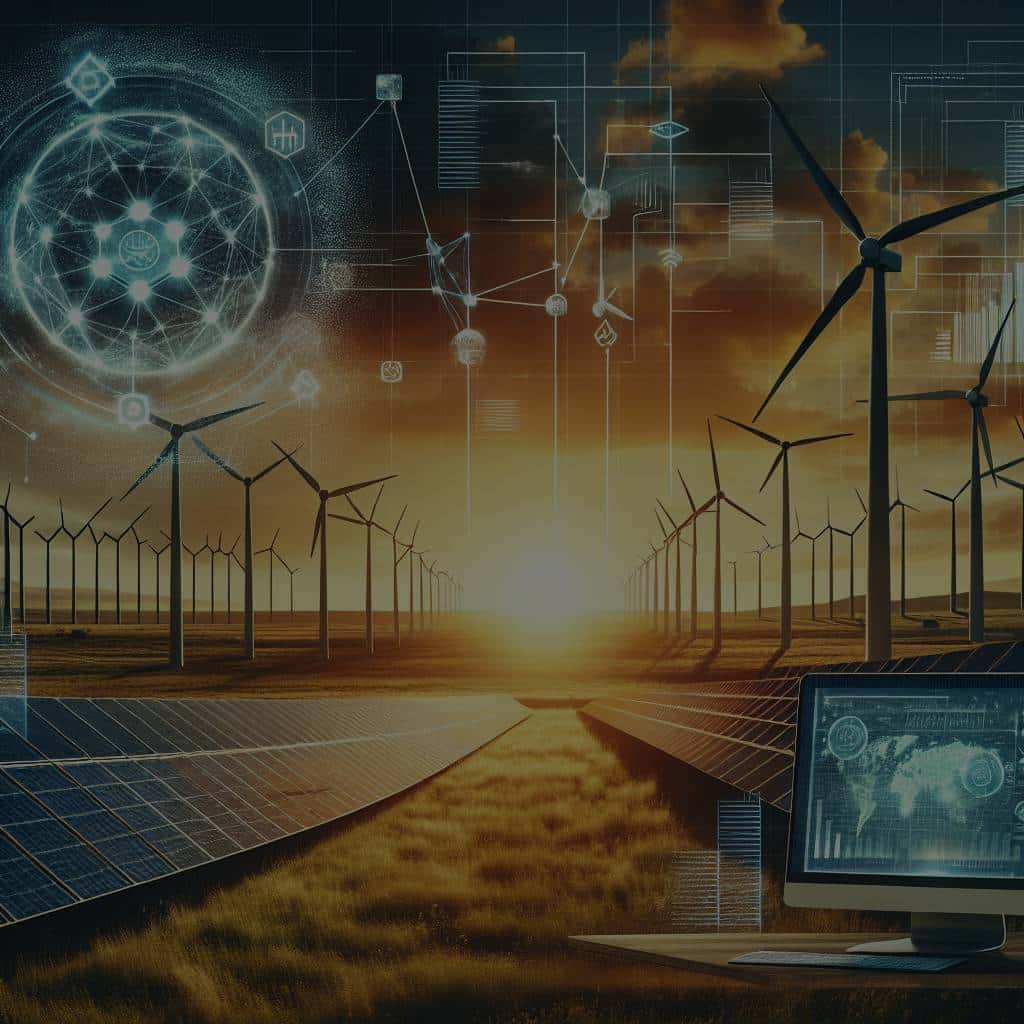How Can AI Optimize Renewable Energy Production from Wind and Solar Sources?

The world of energy is in a rapid state of flux and transition. As the sector moves away from traditional fossil fuels towards more sustainable solutions, renewable energy sources such as wind and solar power have become increasingly critical in meeting the global demand for energy. However, the industry faces unique challenges in managing these renewable resources efficiently. How are we to forecast energy production accurately and manage the grid for optimal efficiency? This is where artificial intelligence (AI) comes to play a pivotal role. AI, with its potential to analyze vast amounts of data and make accurate predictions, presents a cutting-edge solution to optimize energy production from wind and solar sources.
The Imperative of Energy Management in the Renewable Sector
In the renewable energy sector, managing production and demand is a balancing act. With sources like wind and solar power, production can be unpredictable and varies significantly based on weather conditions. Consequently, energy management, which includes accurate forecasting, efficient use of resources, and effective maintenance of energy systems, is crucial.
Also to see : How Are Organ-on-a-Chip Technologies Revolutionizing Drug Testing and Development?
AI can provide the necessary tools to navigate these challenges. With AI, energy providers can predict production levels, streamline the grid and ensure systems are operating at maximum efficiency. This is achieved by employing machine learning algorithms to analyze historical and real-time data, resulting in precise forecasts and efficient energy management.
Powering the Future: AI in Wind Energy Production
Wind power is a significant player in the renewable energy sector. It’s clean, abundant, and has the potential to meet a sizeable chunk of global energy demand. However, it also has its unique challenges, primarily its unpredictability and the need for regular maintenance of wind turbines.
This might interest you : What Are the Challenges of Implementing Smart Home Technology in Older Buildings?
AI can play a transformative role in wind energy management. It can accurately predict wind speed and direction using historical data and real-time weather forecasts, thereby improving the efficiency of energy production. AI can also monitor the health of wind turbines and predict potential failures before they occur. This predictive maintenance can save significant time and resources, ensuring that the turbines are always operating at their maximum capacity.
Illuminating the Path: AI in Solar Energy Management
Solar power is another key player in the renewable energy sector. With the sun being an abundant and free energy source, solar power has tremendous potential. However, the production of solar energy is not without its challenges. It requires efficient management of the grid and accurate prediction of solar irradiance based on weather conditions.
AI can be a game-changer in solar energy management. It can analyze vast amounts of data from various sources to accurately predict solar irradiance, leading to more efficient energy production. AI can also help in managing the grid by balancing the energy supply from various sources and ensuring optimal use of the power produced.
AI and the Optimization of Energy Systems
In the renewable energy industry, optimizing energy systems is key to efficient use of resources and reduction of waste. This involves managing the power grid effectively, ensuring that energy production matches demand, and that the energy produced is distributed efficiently.
AI can provide a solution to these challenges. With its ability to analyze vast amounts of data and make accurate predictions, AI can help in effectively managing the grid. It can balance the energy supply from various sources, predict demand, and ensure that the power produced is distributed efficiently. This leads to an optimized energy system where resources are used efficiently and waste is reduced.
The Challenges and Future of AI in Renewable Energy
While AI holds great promise in optimizing renewable energy production, it’s not without challenges. The adoption of AI in the energy sector requires significant investment, and there’s a need for regulatory frameworks to guide its use. Furthermore, the accuracy of AI predictions depends on the quality of data available, and ensuring access to high-quality data can be a challenge.
Despite these challenges, the future of AI in renewable energy is bright. As technology advances and more data becomes available, AI’s predictive capabilities will only improve. This will lead to more efficient energy management, reduced waste, and a more sustainable future. Indeed, AI is set to revolutionize the renewable energy sector, transforming how we produce, manage and consume energy.
While we are in the midst of this transformation, it’s essential to remember that technology like AI is just a tool. The real power lies in our ability to harness it effectively to create a more sustainable and energy-efficient future.
Harnessing AI for Optimal Energy Storage and Grid Management
The process of storing and distributing energy effectively is a significant challenge in the renewable energy sector. Inconsistencies in energy production, due to fluctuating wind speeds and varying sunlight levels, make it difficult to balance energy supply and demand. To overcome this, energy companies are investing in sophisticated energy storage systems. Yet, managing these systems and the overall power grid to ensure no energy is wasted and supply consistently meets demand, requires an advanced level of analysis and prediction.
This is where artificial intelligence (AI) can be instrumental. AI algorithms can analyze real-time data from multiple sources, including wind speed, sunlight levels, energy consumption rates, and energy storage levels. Using machine learning, these algorithms can learn from this data to make accurate predictions about future energy production and demand levels. For example, if AI predicts a sunny day, it could adjust the grid to draw more power from solar panels, while also ensuring energy storage systems are prepared to absorb any excess power produced. Conversely, on a day when less sunlight is expected, AI could adjust the grid to draw more power from wind turbines or other energy sources. In this way, AI can optimize energy storage and grid management, ensuring maximum efficiency and minimum waste.
Moreover, AI can facilitate predictive maintenance of energy storage systems and grid infrastructure. By analyzing data from these systems, AI can detect anomalies and predict potential system failures before they occur. This allows energy companies to carry out maintenance or repairs in a timely manner, preventing costly downtime and increasing the lifespan of their equipment.
The Future Outlook of AI in Renewable Energy
As the renewable energy sector continues to evolve and grow, the role of AI is set to become increasingly significant. The ability of AI to analyze large volumes of data and make accurate predictions is crucial for optimizing energy production, storage, and grid management. As the adoption of AI accelerates, energy companies will be able to harness clean energy sources like wind power and solar energy more effectively.
Yet, a future powered by AI and renewable energy also brings challenges. Investing in AI technologies requires substantial financial resources and a commitment to ongoing research and development. Ensuring access to high-quality, real-time data is another key challenge, as the accuracy of AI’s predictions heavily relies on the quality of data it analyzes. Furthermore, there’s a pressing need for clear regulatory frameworks to guide the use of AI in the energy sector and safeguard against potential risks.
Despite these challenges, it is clear that the benefits of AI far outweigh the difficulties. As we look to the future, we can expect to see AI becoming more integrated into the renewable energy sector. Enhanced predictive capabilities will lead to more efficient energy management, improved grid stability, and a more sustainable future.
In conclusion, artificial intelligence is a vital tool for optimizing renewable energy production from wind and solar sources. It not only improves efficiency but also revolutionizes the way we manage and consume energy. However, the true power of AI lies in our ability to utilize it effectively. With continued advancements and responsible use, AI can significantly contribute to creating a more sustainable, energy-efficient future.
